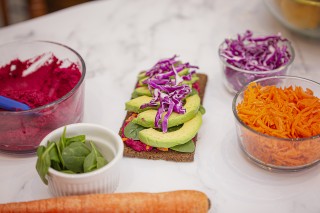Statistic Brain Research Institute reports that the top five New Year’s resolutions for 2015, in descending order, were:
- Losing weight
- Getting organized
- Spending less and saving more
- Enjoying life to the fullest
- Staying fit and healthy.
According to findings published in the Journal of Clinical Psychology, half of you will be making New Year’s resolutions this year, but only half of you that make resolutions will carry them forward until February before backsliding. By December, most resolutions will have been completely abandoned.
So, why are old habits so hard to kick?
Thinking and behavioral patterns are deeply wired in the neural pathways of our brains. The longer we engage in a pattern, the more engrained the pathway, and the more it becomes a default for behaviors, even if this behavior does not serve you.
For example, if your Mom gave you cookies as a child to calm you down when you were upset, you may find yourself reaching for sweets today as a coping mechanism for stress.
The good news is that we can retrain our brains to support new pathways. It takes a lot of conscious effort, but can be done.
Here are some tips to get resolutions to stick:
- Make small, realistic, and very specific goals. Instead of saying, “I want to lose 100 pounds,” focus on a few behavioral changes like displacing the afternoon candy bar with a piece of fruit, or displacing alcohol with sparkling water.
- Write down your goals. This makes them more tangible, and will help give goals definition and direction. Kind of like setting coordinates into your GPS – this will be your map in making things happen. You may have it in your head that your goal is to start exercising more. How do you see this coming to fruition? Write down specifics, such as times in your calendar when you will go to the gym, setting your alarm earlier, laying your exercise clothing out the night before, or addressing any other potential barriers that may derail you from your course.
- Get support – Ask for help from family and friends. If you have a health goal, this may mean giving input on restaurant choices, or substituting food related activities with other options, like a hike, or a movie. If support is lacking within your circle, seek out a like minded group, such as through Meet Up or a local organization. For example, if your goal is to increase your biking distance, visit a local bike shop and connect with other bikers to organize rides. If you prefer one to one support, or need accountability, seek out a qualified healthcare professional such as psychologist or registered dietitian. Limit contact with those you do not support you, or worse, may try to sabotage you.
- Make an effort to push out negative, self-deprecating thinking. Meditation and yoga are great strategies to keep your thinking in the present, slow down your mind, and reboot your thoughts back to those that will serve you well.
- Be flexible with yourself and your goals. They are a work in progress, not written in stone. You may have set goals so lofty, that you find they are not possible to maintain. Maybe you tried a crazy fad diet that left you binging later on in the evening. Reflect back and consider it a learning experience to find what changes are possible for you today, and move forward. Just because one strategy did not work, does not mean you should abandon your efforts. Keep exploring.
Whatever your goals, have fun with them – you are doing something positive for yourself. Happy New Year, keep calm, and don’t eat a cookie!



 Follow Me On Instagram
Follow Me On Instagram Like My Facebook Page
Like My Facebook Page My LinkedIn
My LinkedIn



